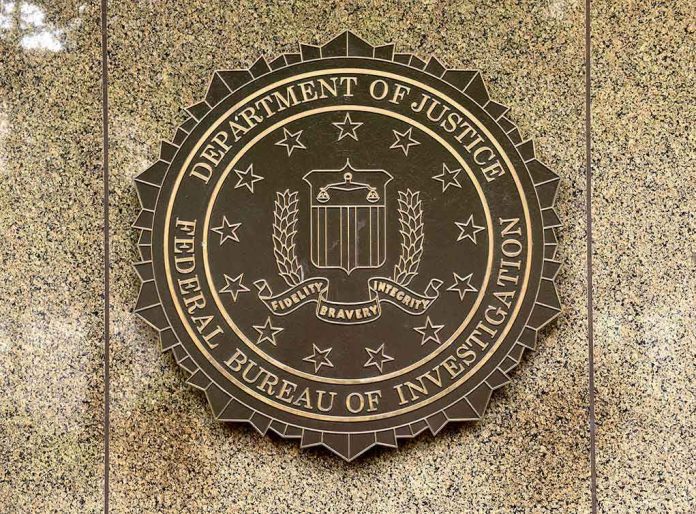
FBI Director Kash Patel’s claim of stopping a Halloween terror plot in Michigan has ignited fierce debate, as a local lawyer now alleges the entire plot was a fabrication—raising new concerns about government overreach and attacks on constitutional rights.
Story Highlights
- The FBI announced it thwarted an ISIS-inspired Halloween terror plot in Dearborn, Michigan, with high-profile arrests.
- A Michigan lawyer representing suspects publicly disputes the FBI’s account, claiming there was never a real plot.
- The controversy renews scrutiny of government surveillance, due process rights, and law enforcement transparency.
- Community tensions rise as conservatives question FBI credibility and the risks of politicized policing.
FBI Claims Major Terror Plot Thwarted in Dearborn
On November 1, 2025, FBI Director Kash Patel announced that federal agents had disrupted a major terrorist plot in Dearborn, Michigan, allegedly inspired by Islamic State extremism. Multiple individuals were arrested following FBI raids over the Halloween weekend, with Patel crediting law enforcement vigilance for preventing what he called a potential tragedy. The operation reportedly stemmed from online surveillance and infiltration of a suspected extremist chat group, and was framed by the FBI as a preemptive action to protect the public during a high-risk holiday filled with large gatherings.
The agency’s narrative described the suspects as actively coordinating an attack, signaling a continued threat from online radicalization. Dearborn’s large Muslim and Arab-American community, previously at the center of national security attention, once again found itself in the spotlight. The public response was swift, with mainstream media amplifying the FBI’s account and officials lauding the operation as proof of robust homeland security. Yet, as with earlier FBI stings, questions soon emerged about the actual evidence behind the arrests and the scope of the alleged plot.
Legal Challenge: Defense Lawyer Calls Plot a Fabrication
Within days of the FBI’s announcement, a Michigan lawyer representing one or more of the arrested individuals publicly challenged the entire narrative. The lawyer accused the FBI of exaggeration or outright invention, stating that no actionable plot existed and that his clients had been unfairly targeted. This counter-narrative quickly gained traction, especially among those wary of government overreach and past instances where FBI “sting” operations have ensnared vulnerable individuals with limited means or intent to carry out violence.
The defense’s challenge underscores a recurring theme: the need for transparency and due process when federal power is deployed against American citizens. Conservatives have long warned that unchecked law enforcement authority can erode fundamental liberties, especially when agencies operate with opaque methods and limited judicial oversight. The current situation revives memories of controversial cases like the 2020 Michigan governor kidnapping plot, which raised allegations of FBI entrapment and manipulated evidence.
Community Tensions and Constitutional Concerns
As legal proceedings advance, the Dearborn community faces renewed anxiety and scrutiny, with civil rights advocates highlighting the risk of profiling and collective suspicion. The lack of publicly disclosed evidence further clouds the legitimacy of the FBI’s claims, leaving residents and observers to question whether the operation was a genuine success or a politically motivated show of force. Such ambiguity damages trust in both law enforcement and the justice system, especially if evidence ultimately fails to substantiate the threat.
The episode strikes at the heart of ongoing debates about the balance between security and liberty. For many Americans—particularly constitutional conservatives—this incident is a textbook example of why robust checks on federal agencies are vital. Without clear limits and transparency, there is a real danger that government power will be wielded not just against criminals, but against ordinary citizens and political adversaries, undermining the very freedoms the Constitution is meant to protect.
Public Debate Intensifies: Demands for Transparency and Accountability
The central contradiction—between the FBI’s assertion of an imminent, credible threat and the defense’s insistence that no plot existed—remains unresolved due to limited public disclosure of evidence. This uncertainty fuels broader skepticism about politicized law enforcement, particularly in an era where previous left-leaning policies have eroded trust in federal agencies. Conservative observers are demanding accountability, calling for full transparency in court proceedings and public release of any substantive evidence.
Ultimately, the outcome of this case will shape national discussions around counterterrorism, due process, and the proper limits of government power. If the defense’s claims are validated, it will serve as a stark warning about the risks of overzealous policing and the urgent need to restore constitutional protections for all Americans. Until then, the story remains a flashpoint in the ongoing struggle to safeguard both security and liberty in a divided nation.


